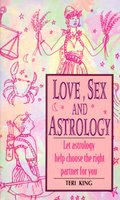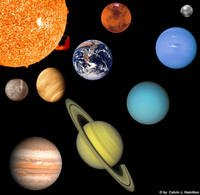Love, Sex, and Astrology
Dealing with a sick doggie this week, so not as much time to write as I'd like. But I did take it upon myself to tell you things you ought to know, so I wanted to give you something to chew on to tide you over...
In high school I came across a paperback in a local Waldenbooks called "Love, Sex, and Astrology." Within its pages I found each astrological sign described in detail, and most importantly
 how compatible each star sign was with members of the opposite sex: Ares man with Gemini woman, that sort of thing. Using tables and highly detailed explanations of each sign's best and worst qualities, the book was a treasure-trove that paid for itself in just a few short weeks.
how compatible each star sign was with members of the opposite sex: Ares man with Gemini woman, that sort of thing. Using tables and highly detailed explanations of each sign's best and worst qualities, the book was a treasure-trove that paid for itself in just a few short weeks.Armed with this golden tome of arcane knowledge I immediately went about collecting the birthdays of as many men and women in my high school as I could, noting their star sign within my specially-designated mystical trapper-keeper notebook. Within a week I had amassed a tremendous amount of information and I put it to use by hanging out a shingle as the newest practitioner of the most noble of Hebrew professions: matchmaker.
For a mere dollar, I'd provide interested parties with a list of all the people in our school who were the most compatible with their star sign. You're a Virgo lady? Well, then your best matches would be with the other earth signs, and here's a list of fellows who happen to be Capricorns and Tauruses. (Taurii?) I made myself a solid 11 bucks, and the book was only $6.99. Score!
Now, in the midst of your admiration for my entrepreneurial spirit, you may perhaps be sniggering at my faith in astrology. It's common these days to discount astrology, yet nevertheless it is the oldest formalized field of study, dating back more than four thousand years. Our best ancient thinkers, the three folks who formed the foundation of western thought (Socrates, Plato, and Aristotle) were each avid astrologers.
Astrology lost prestige during the Age of Enlightenment as empirical science grew in popularity and astrology was unable to provide hard proof of its efficacy. Over a short period of time the oldest science of humanity was relegated to niche status and became known as more occult than scientific; an enigmatic hobby for hippies and nudists.
Yet it continues to be popular, and in some circles, advocates maintain that astrology remains an accurate predictor of behavior and events.
What You Need to Know

Nearly 350 years ago Isaac Newton stumbled upon the theory of gravity, and though he didn't initially understand the mechanism, he was able to apply his theory to explain the acceleration of falling bodies on Earth, as well as the motion of the moon and the other planets in the solar system.
His work led to what would come to be called the "Universal Law of Gravitation." Newton postulated that every molecule in the universe exerted a force upon every other molecule in the universe, and the strength of that force was based on the mass of the molecules and their distance from each other.
As the Earth whirls through the heavens, due to Newton's efforts we learned that it is acting on and being acted upon by the gravitational forces of the Moon, the Sun, the planets, and trillions of stars both local and remote. In increments too small for us to perceive we are affecting, and constantly being affected by, their mass and gravity. According to Newton's theory, you could wave your arms on Earth and in some small way affect the orbit of a star millions of light years away.
We see empirical evidence of Newton's theories all around us. For instance, the diameter of the Earth is large enough that the gravitational force exerted by the Moon is measurably stronger on the side of the Earth that's closest to the Moon and measurably weaker on the far side. Since Earth is 70% water and gravity acts on a fluid more noticeably than it does a solid, we can measure the variable impact of the Moon's gravity on the different bodies of water across the globe. It's the Moon's fluctuating gravitational pull on the waters of the world's oceans that is responsible for the motion of the tides.

In ancient Mesopotamia, Egypt, Greece, and Rome scholars recognized the impact on the sea caused by the waxing and waning of the Moon, and wondered about the other bodies in the heavens. They created vibrant mythologies to explain the celestial movements, misunderstanding the mechanics but doubtless of the impact on not just the planet, but also upon its inhabitants.
And is that far-fetched? When you reflect upon how much of our bodies are fluid, how we spend our initial nine months of development surrounded by fluid, breathing fluid, and being nourished by fluid, you may agree that much like the oceans we too may be particularly susceptible to the variable gravitational forces at play in our universe.
During the course of our lifetimes certain configurations of heavenly bodies re-occur as we move through the calendar and simultaneously the zodiac. There's room enough in my philosophy to allow that the physics behind those astrological configurations may somehow play a role in our construction, manifesting in our character or biology as, for instance, a propensity for stubbornness, gluttony, and lust. (Go Taurus!)
So the next time you're reading your horoscope, before you discount the world's oldest scholarly pursuit remember that there is the hard science of Isaac Newton behind each and every mysterious prediction.


2 Comments:
Say, Mr. Chief, I'm a Cancer Woman. What does your trapper keeper say about us as a couple?
Rocky outlook, I'm afraid...
Post a Comment
<< Home